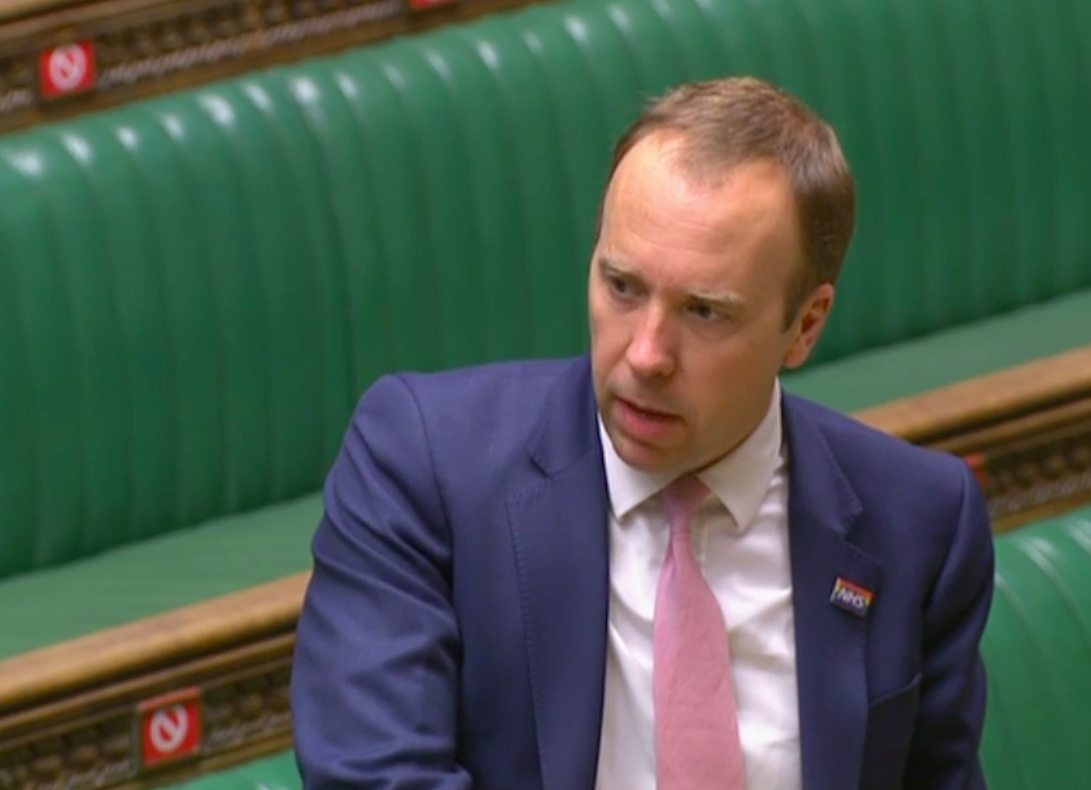MPs are back. So how did they do at holding the government to account?
Parliament has been unable to scrutinise Matt Hancock’s handling of coronavirus for six weeks – although we didn’t learn much new from today’s exercise in democratic accountability, writes John Rentoul


Matt Hancock, the health secretary, spent two hours in the House of Commons on its first day back, making a statement about coronavirus and answering MPs’ questions. After a six-week recess it felt important that the people’s representatives should have the chance to hold the government to account for its management of the disease over the summer.
Slightly to my surprise, it was an informative and constructive session. Hancock started by saying only two people had died from coronavirus on the latest day for which figures were available, and there are only 60 people on ventilators, compared with 3,300 at the peak. But he said there were exponential rises in cases in France and Spain, and hospitalisations were rising there too. He didn’t mention the “reasonable worst-case scenario” for the UK of a second wave of 85,000 deaths over the winter, which was leaked last week, preferring instead to mention the “best-case scenario” of developing a safe vaccine “this year”.
Jonathan Ashworth, the shadow health secretary, started his response by saying, “We are indeed all on the same side in fighting this virus,” but asked tough questions about the effectiveness of NHS Test and Trace. Hancock didn’t really answer them, but the point about democratic accountability is not to produce immediate results as much as to apply pressure.
Philippa Whitford, the Scottish National Party spokesperson, asked a good question: why is the government pushing pupils back to school and people back to work at the same time? Hancock didn’t answer that either – not directly – but the implication of what he said is that the level of infection is so low that it is possible to try to do two things at once, cautiously.
Labour MP Chris Bryant asked what I thought was one of the most important questions. How is the NHS going to catch up with cancer treatment, which has been grievously disrupted by the virus? Hancock said the NHS was being split into “Covid green”, where the virus was unlikely to be, and “Covid blue”, where it was a risk, in order to accelerate the clearing of the backlog. But it didn’t sound as if the same urgency was being applied to other fatal illnesses as it had been to coronavirus.
Rehman Chishti, the Conservative MP, asked another important question about mental health, which helped to keep at least some attention on a neglected subject.
But most of the questions were about details of local lockdowns, or the test, trace and isolate regime, or process questions about the decision to replace Public Health England with a new body, to which Hancock gave assiduous and detailed answers.
It wasn’t until Sir Edward Leigh, the veteran Tory, asked a question that the Commons finally faced up to some of the bigger issues about the response to coronavirus. He accused the government of “patronising” old people such as him (he’s 70) by telling them what’s good for them. Speaking up for people who think the government’s response has been heavy-handed if not dictatorial, he said old people should be trusted to isolate themselves if they have to, and he urged a return to a “proper Conservative government” that would “get back to trusting people”.
Hancock paid him the compliment of a serious answer. “This disease passes on without people knowing,” he said. “The goal is to have as little intervention as possible, and as targeted as possible.” He implied that a certain amount of compulsion was needed to “protect the ability of schools to go back” and to get the economy up and running again.
We didn’t learn much new information in today’s two-hour outbreak of democratic accountability, but it was briefly refreshing to have some of the fundamental questions about the government’s handling of the virus aired by the people’s representatives doing what they are elected to do.
Join our commenting forum
Join thought-provoking conversations, follow other Independent readers and see their replies
Comments
Bookmark popover
Removed from bookmarks